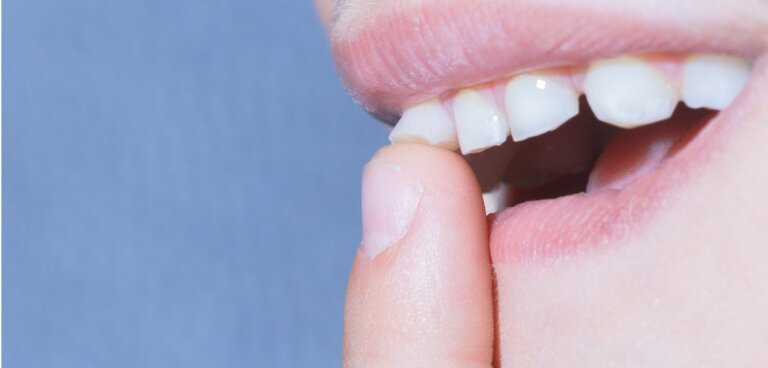Tooth Trauma

What Is Tooth Trauma?
Tooth trauma refers to any injury affecting the teeth or surrounding structures such as the gums, lips, or jawbone. It can range from minor issues like chipped teeth to severe conditions like a knocked-out tooth or jaw fractures. Common causes include accidents, sports injuries, falls, or biting on hard objects.
If untreated, tooth trauma can lead to infections, abscesses, or permanent tooth loss. Seek immediate dental care to minimize the risk of complications. Before you contact a Toronto dentist to examine Tooth Trauma, there are some things you should know as a patient:
- Why Does Tooth Trauma Occur?
- Signs And Symptoms Of Tooth Trauma
- Treatment Options For Tooth Trauma
- Managing Tooth Trauma Until You Can See The Dentist
- Frequently Asked Questions About Tooth Trauma
If you have questions about Tooth Trauma or other dental problems, please contact us for more information.
Why Does Tooth Trauma Occur?
Tooth trauma can happen to anyone, but certain factors increase your risk:
- Accidents and Injuries: Falls, car accidents, or sports impacts are leading causes.
- Teeth Grinding: Chronic clenching or grinding can weaken teeth over time.
- Poor Oral Hygiene: Decayed or weakened teeth are more prone to injury.
- Malocclusion: Misaligned teeth can create uneven pressure, increasing fracture risks.
- Aging: Teeth become more brittle with age, making them susceptible to damage.
- Extensive Dental Work: Large fillings can weaken the structural integrity of teeth.
If you are at risk, talk to your dentist about preventive measures like custom mouthguards or bite correction. If you have further questions about Tooth Trauma, please contact us.
Signs and Symptoms of Tooth Trauma
Identifying symptoms early can ensure faster treatment and better outcomes. Key indicators include:
- Pain or Sensitivity: Persistent pain or discomfort when chewing, biting, or consuming hot or cold food.
- Swelling or Bleeding: Injuries can cause gum swelling, cuts, or bleeding in the mouth.
- Tooth Movement: Loose, dislodged, or misaligned teeth.
- Visible Damage: Cracks, chips, or fractures that may be detectable during dental exams.
- Knocked-Out Tooth: A dental emergency requiring immediate professional care.
If you experience any of these symptoms, schedule an urgent appointment with your dentist. For more information about the signs and symptoms of Tooth Trauma, please contact us.
Treatment Options for Tooth Trauma
Treatment depends on the type and severity of the injury:
- Minor Injuries:
- Dental Bonding: Repairs minor chips with tooth-colored resin.
- Dental Crowns: Protects and restores larger fractures.
- Moderate Injuries:
- Root Canal Therapy: Necessary if the pulp or nerve is damaged.
- Splinting: Stabilizes loose teeth to aid healing.
- Severe Cases:
- Tooth Extraction and Implants: Damaged or lost teeth may need replacement.
- Preventive Tools:
- Custom Mouthguards: Protect teeth during sports or physical activities.
If you experience tooth trauma, it’s important to seek prompt dental care to ensure the best possible outcome for your oral health. For more information about treatment options for Tooth Trauma, please contact us.
Managing Tooth Trauma Until You Can See the Dentist
If you’ve experienced dental trauma, follow these steps before reaching the dentist:
- For Knocked-Out Teeth: Place the tooth in milk or a tooth preservation kit and avoid touching the root. Seek care within 1 hour.
- Rinse Your Mouth: Use warm water to clean the area.
- Control Bleeding: Apply pressure with gauze or a clean cloth.
- Reduce Swelling: Use an ice pack on the outside of the mouth.
- Pain Management: Over-the-counter pain relievers like ibuprofen can provide temporary relief.
- Protect Sharp Edges: Cover jagged tooth edges with dental wax to prevent soft tissue injuries.
These first-aid measures are temporary. Always seek professional care promptly to avoid complications. For more information about how to manage Tooth Trauma from home until you can see the dentist, please contact us.
Frequently Asked Questions About Tooth Trauma
- What should I do if I knock out a tooth?
Gently rinse the tooth with water (do not scrub), and place it in milk or saliva. Seek dental care immediately, ideally within 1 hour, for the best chance of reimplantation.
- Can chipped teeth repair themselves?
No, chipped teeth do not heal naturally. However, minor chips can often be repaired with bonding or veneers.
- How soon should I see a dentist after tooth trauma?
You should see a dentist as soon as possible, especially if there is pain, swelling, or a dislodged tooth. For emergencies like knocked-out teeth, seek care within an hour.
- Are mouthguards really effective?
Yes, custom-fitted mouthguards significantly reduce the risk of dental injuries during sports and physical activities.
To learn more about tooth trauma, its treatment, or how to protect your smile, contact us at Atlas Dental. Our team is here to provide expert care and guidance.

